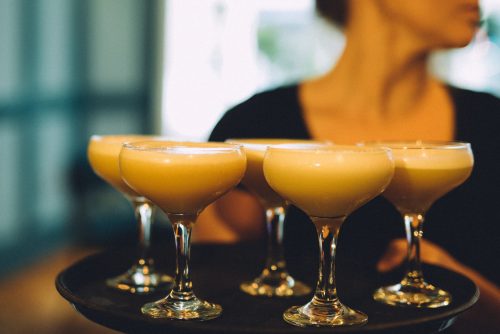Mixed picture as wage pressures and inflation still hitting ‘resilient’ hospitality sector

Revolution Bars has suffered a soft start to the New Year and expects to make between £3m and £3.5m in annual profits (EBITDA) it warned the stock market this morning.
It has also held off on any new refurbishments as a way of reducing capital spending across its estate and keeping debt manageable. Debt currently stands at £20.3m.
Despite the best Christmas trading since 2019, and therefore a strong post-pandemic recovery, the operator of 8 premium bars and 22 gastro pubs, trading mainly under the Revolution, Revolución de Cuba and Peach Pubs brands blamed train strikes and the increase in the National Minimum Wage (NMW) for a costs hike and said “January trade has started softly as guests recover from the expense of Christmas.”
In a statement to the stock market this morning Rob Pitcher, chief executive of Revolution Bars Group, said: “Whilst the business continues to manage costs tightly, the significantly above inflation increases in both business rates and payroll costs set by the Government are a significant additional burden and barrier to growth. As a result, the Board now expects IAS 17 EBITDA to be c£3-3.5m.”
The news comes as new research claims the resilience of the sector, and the willingness for new operators to try new concepts appears to outweigh the pressure to close venues.
The research conducted by Northern Restaurant & Bar in partnership with CGA by NielsenIQ reveals all northern England cities saw a growth in sales in managed pubs, bars and restaurants, with an average of 7.2% growth. Newcastle (12.7%) and York (9.2%) lead the uptrend, followed by Sheffield (7.1%), Liverpool (6.8%), Chester (5.6%), Manchester (4.8%), and Leeds (4.4%).
Despite a 2.5% decline in total venue numbers across the British pub, bar, and restaurant sector in the latest year to October, the industry remains dynamic, the survey says, witnessing an average of 48 new openings per week. This ongoing activity signals a significant level of renewal. Business leaders are also generally optimistic about the prospects of their own business in the next 12 months. This sentiment is stronger in the north, where 59% of leaders expressed confidence in the sector, compared to 51% in the south.
Siobhan Thompson, Event Manager for NRB24, commented: “The results underscore the strength, resilience, and ambition of Northern hospitality establishments. Despite shared challenges in the sector, operators in cities like Liverpool, Manchester, Sheffield, and Newcastle have demonstrated innovation and optimism in the face of issues such as rising utility prices, food inflation, and staffing concerns. While challenges persist, it’s heartening to witness the industry’s adaptability and positivity. The surge in new concepts, site launches, and the enthusiastic influx of customers through the doors offer a much-needed burst of positivity,”
Notably, northern cities such as Liverpool (-0.8%), Newcastle (-1.2%), and Chester (-1.0%) have proven more resilient than London (-2.2%) and the national average, in terms of the number of outlets. With over a quarter (26%) of new openings in the North, this resilience is particularly noteworthy against a backdrop of rising energy prices, food and drink inflation, and increased National Living Wages.
In January Revolution moved to close down eight of its “least profitable bars” to reduce future site losses.
The closed bars are: Revolution Bars in Beaconsfield, Derby, Reading, St Peters Liverpool and Wilmslow, Revolución de Cubas in Sheffield and Southampton and the Playhouse in Newcastle-Under-Lyme.
The challenges for mainstream hospitality businesses were echoed by Tim Martin, founder of Wetherspoons as he announced a trading update this morning.
Martin said: “Wetherspoon, like the hospitality industry, has seen a consistent but slow recovery, following the pandemic.
“Although inflation is, in general, reducing, labour and energy costs are far higher than pre-pandemic.
“A main issue for the pub trade is that labour costs are around 30% of sales, compared to around 10% for supermarkets.
“The price of a pint in a supermarket is about £1, so a 10% increase in labour costs (which are around 10 pence per pint) necessitates a one pence increase in the selling price to cover costs.
“However, for pubs, the average selling price of a pint is around £4.50. The labour per pint is therefore around £1.35 (30% of £4.50), necessitating a 13.5 pence increase in the selling price to cover extra costs.
“The inevitable consequence is that increased labour costs raise the differential in prices between the hospitality industry and supermarkets.
“At the same time, pubs pay far higher VAT and business rates than supermarkets, further exacerbating the price disparity.
“In particular, pubs and restaurants pay 20% VAT in respect of food sales, whereas supermarkets pay almost nothing, a tax differential which is surely unfair.
“Notwithstanding these issues, Wetherspoon currently expects an outcome for the financial year in line with market expectations, and will provide further updates as the year progresses.”







